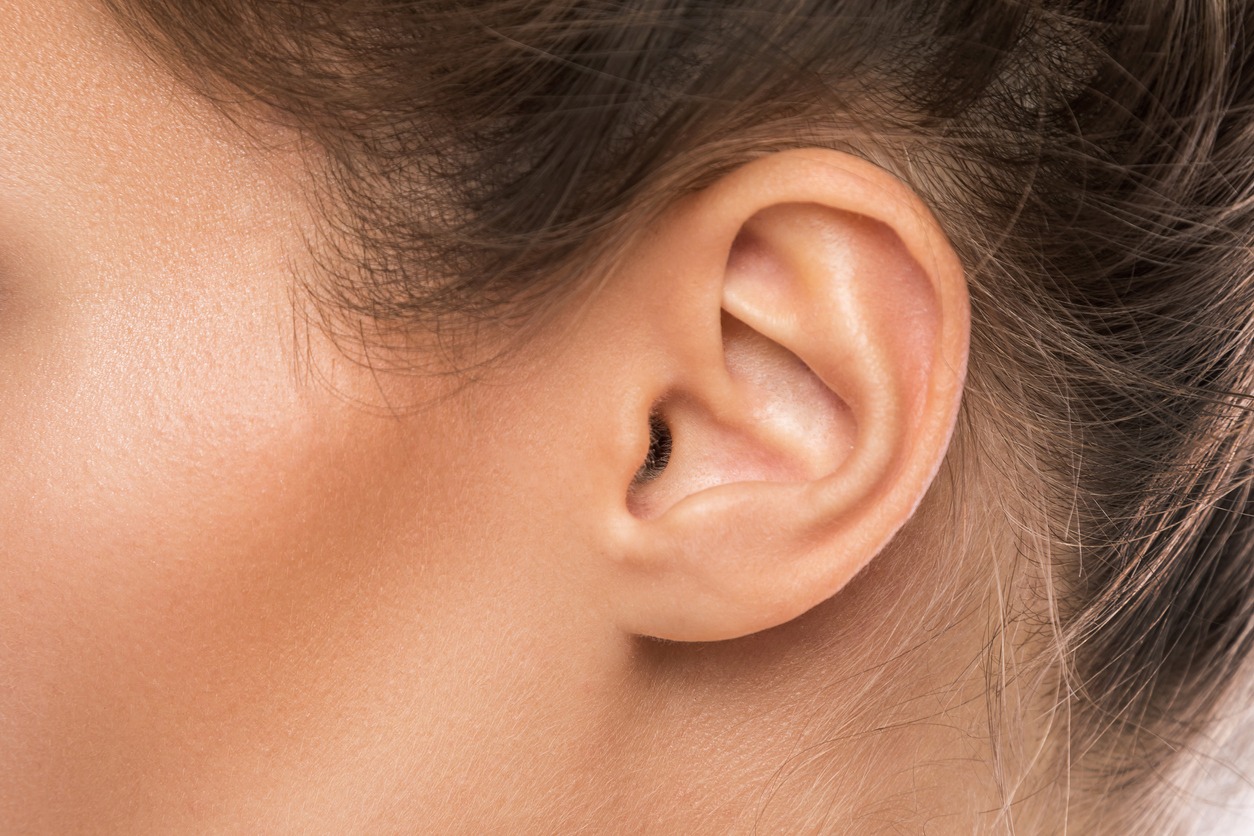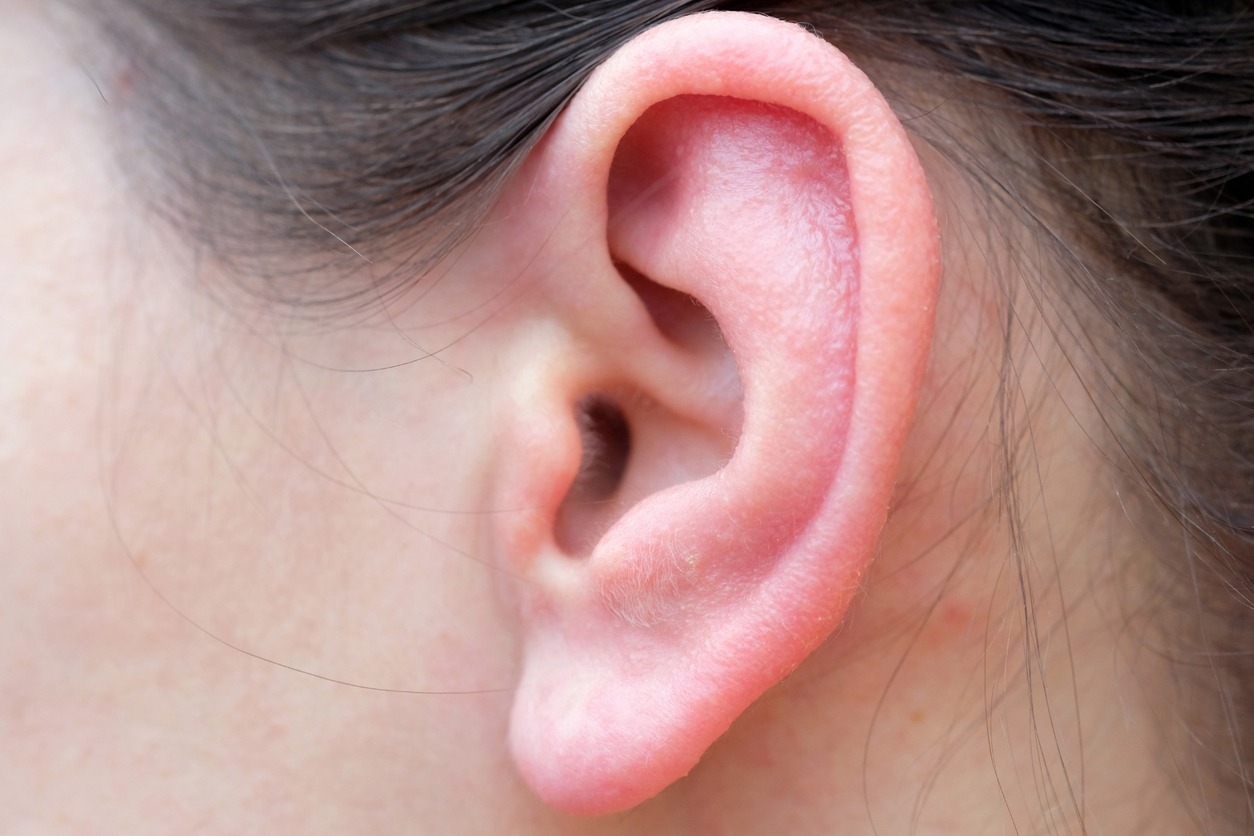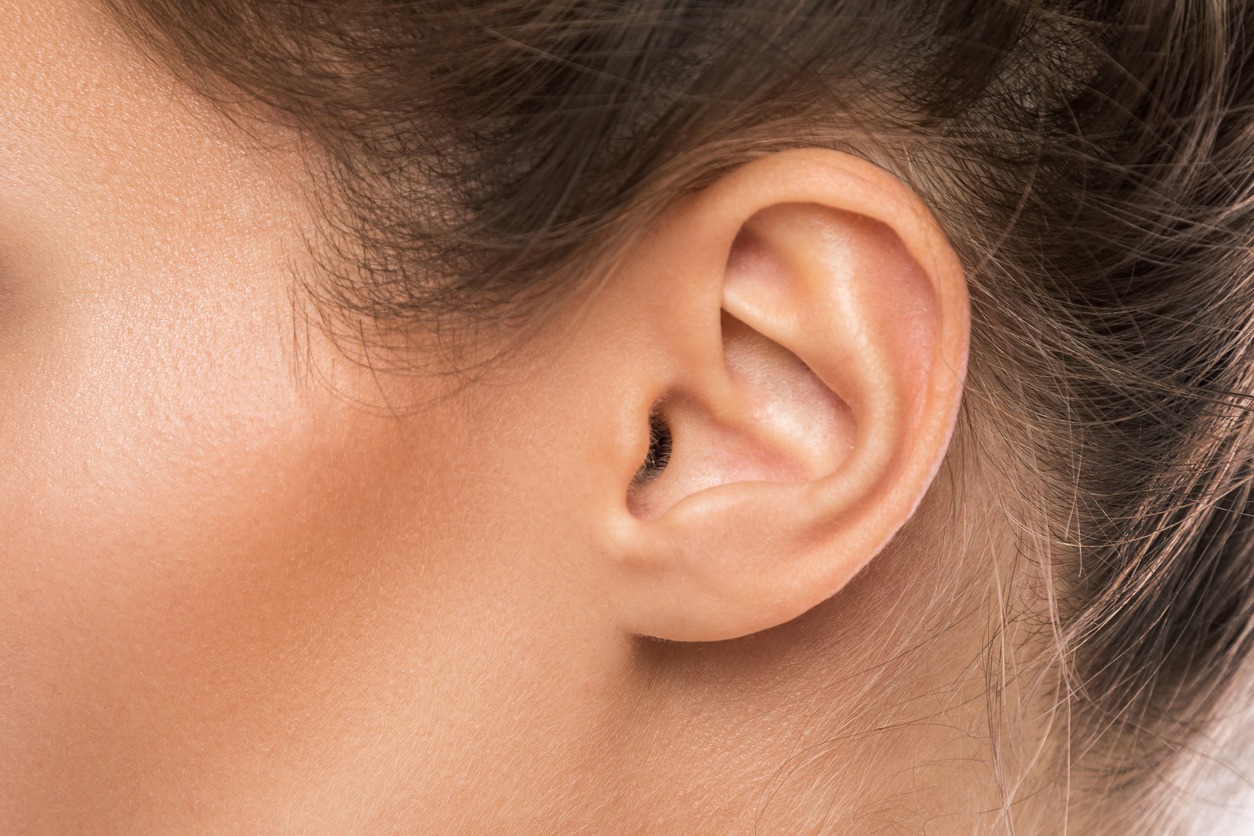Anywhere on the body, including the ears, can develop dry skin, not just on the face, arms, and legs. Although it is a problem that is frequently encountered, dry ears are not frequently discussed. Dry ears are frequently considered to be a form of dandruff. It can therefore be treated similarly to how you would treat a dry, itchy scalp, which is by moisturizing and taking extra care.
There are numerous factors that might contribute to dry skin in and around the ears, such as hot or cold weather, excessive heat, or dry air. In addition, using abrasive soaps and cleaners may exacerbate dryness by removing oil from the skin. The skin around and around the ears might get dry from using perfumes and hot showers. When wearing earrings made of a metal to which you are allergic, such as nickel, you risk developing dry, crusty skin on your ears.
Causes of Dry Ear
Your ears may become dry for a variety of reasons, but the most of them fall under the headings of being either environmental, being a result of age, or being a result of a chronic skin problem.
Allergens or irritating environmental factors may be to blame for dryness of the outer ears. The skin may become dry, red, and itchy after becoming irritated. Contact dermatitis may be more likely to occur if you have sensitive skin. Shampoo, conditioner, moisturizer, soap, perfume, and hair care products are a few examples of environmental irritants that can harm the ears.
Age may also be a factor in dry skin. Almost everyone gets dry skin somewhere on their body by the time they are 60. Vitamin and mineral deficiencies, diabetes, thyroid or kidney disease, cancer treatment, anorexia, smoking, and using statins or diuretics are additional risk factors for dry skin.
Eczema, psoriasis, and seborrheic dermatitis are examples of chronic skin conditions that result in dry, itchy skin. These ailments can all manifest in and around the ears.
Tips for Keeping Ears Moisturized
Chronic skin disorders can cause dry, itchy ears in their sufferers. Psoriasis, eczema, and seborrheic dermatitis are a few of these ailments. Keeping the skin around your ears moisturized is one of the best methods to prevent dry skin. You’ve come to the correct place if you’re seeking for advice on how to keep your ears moisturized because we’re going to provide you some of the best suggestions.
1. Check your routine
Look over your procedure before applying anything to your ears. See if you can locate any soaps, shampoos, or other personal care items that might be the source of the dry skin around or in your ears. Consider the possible environmental causes of the symptoms, such as sunlight exposure, hot showers, or swimming in chlorine pools. Additionally, it’s a fantastic idea to keep a diary of any symptoms you experience and any goods you take that might be contributing to them.
2. Switch soaps
Even if you do not believe that the goods you are using are the cause of your dry ears, it is nevertheless advised to use a milder soap and other personal care products until your ears are moistened. To keep your ears hydrated, start by using gentle soaps and shampoos that won’t dry out your skin. Avoid using antibacterial soaps and those with alcohol and fragrances.
3. Avoid allergens
As was already discussed, having dry ears might be brought on by allergies to particular items. If you think you may be allergic to nickel, stop wearing jewelry and give your ears some time to recover. Once they’ve recovered, keep them moisturized and switch to jewelry made of various materials, such as stainless steel, gold, or sterling silver. The reason for this is that developing a sensitivity to or allergy to nickel and other substances can produce a chronic or lifelong condition that causes your ears to constantly be dry.
4. Prevent itching
Itches are frequently caused by dry skin around and in your ears, which can allow bacteria into your skin and cause an infection. You can apply a cold compress to soothe irritated ears or cream or ointment containing hydrocortisone to reduce swelling.
5. Moisturize often
Finding a strategy to replenish moisture on your skin is the greatest way to stop dry ears and keep them hydrated. You can use a variety of items today, including creams, ointments, and lotions. Ointments often consist of a water-and-oil mixture, such as petrolatum or lanolin. Your ears can receive the best layer of defense from them while remaining hydrated. Oil is a component of creams, although water is their primary constituent. It implies that they need to be used more frequently than ointments.
On the other hand, lotions feel warmer on the skin. They are typically formed of water combined with crystallized powder, though. Additionally, it will be necessary to apply moisturizer frequently to maintain the skin around your ears soft. Applying moisturizers after bathing and drying off is recommended.
6. Use medication when needed
The underlying causes of dry skin can be treated together with the pain it creates. Several possibilities are:
- Topical steroids: The redness and inflammation that accompany with dry skin in the ears can be treated with a topical steroid. It might also lessen itchiness. Your dermatologist will probably advise starting with an OTC drug and then, if necessary, switching to a prescription-strength steroid. A blockage of the canal may result from using steroid creams or other creams inside the ear canal.
- Antibiotic: Your primary care physician will recommend an antibiotic to treat the infection if the dry skin in your ears has gotten infected. This could be either an oral pill or a topical antibiotic cream.
- Medicated shampoo: If seborrheic dermatitis is the root of your ear dryness, your dermatologist could advise gently washing the affected region with a medicated shampoo. When washing your hands, use smooth, gliding strokes rather than rubbing. After properly cleaning it, dry the area with a clean cloth and moisturize it.
- Phototherapy: UV rays are used in phototherapy to treat seborrheic dermatitis and psoriasis. If you have dry skin in your ears, ask your doctor if this therapy can help.
Conclusion
It’s irritating to have dry skin in your ears, so you want to get rid of it as soon as you can. Finding the root of the dry skin is the first step, and your dermatologist may be able to assist. Once you’ve identified the source of your dry skin, you may be able to address it by giving up an irritant substance or starting a new prescription, such as an antibiotic or topical steroid. Call your doctor if your dry skin becomes extremely itchy and uncomfortable or if you experience swelling, discharge, or an unpleasant odor coming from your ears, which are signs of skin infection.



